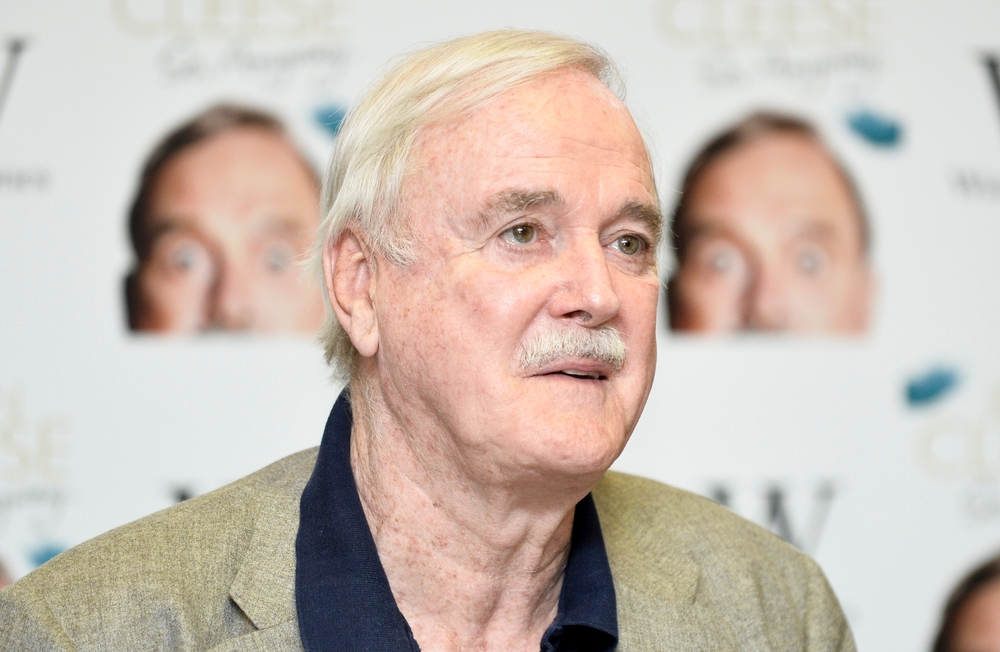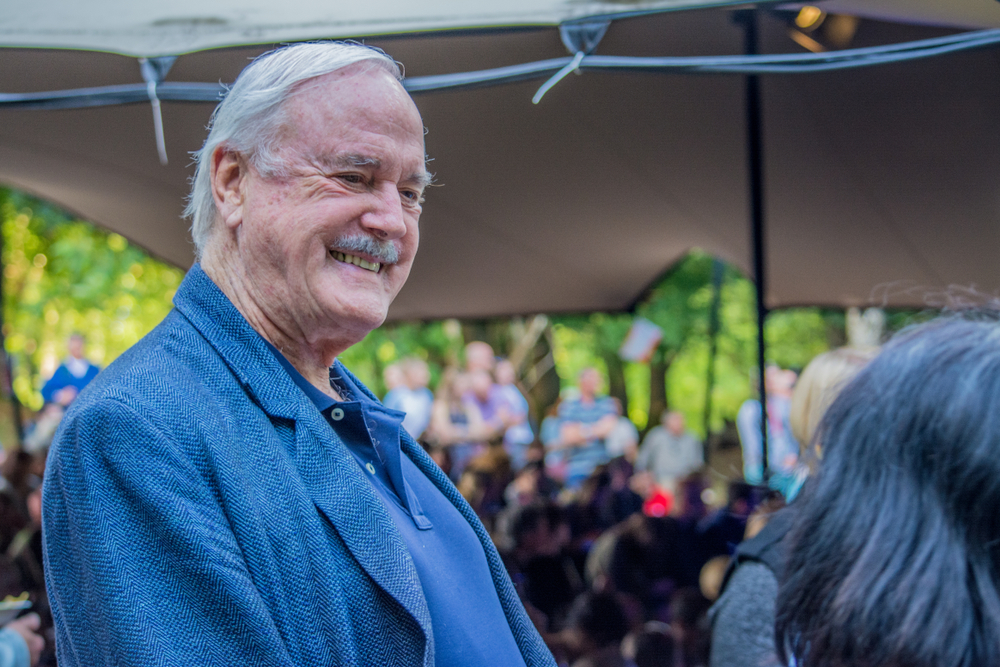Unleash Innovation: John Cleese's Playful Path to Executive Success
In today’s dynamic business landscape, achieving true innovation demands more than conventional strategies. It requires a bold embrace of playfulness and unconventional thinking. Few exemplify this philosophy better than John Cleese, whose legendary comedic genius with Monty Python was, surprisingly, rooted in disciplined creativity. His journey from actor to billionaire net‑worth success story further underscores how unconventional paths can lead to remarkable outcomes. From celebrated actor to insightful thought leader, Cleese’s unique trajectory offers invaluable business creativity lessons for executives eager to unlock their teams’ imaginative potential and drive executive innovation.
John Cleese: From Python Pioneer to Global Icon
John Cleese rose to prominence in the early 1960s as a co-creator of "Monty Python's Flying Circus," a groundbreaking series that revolutionized comedy. His ability to seamlessly blend intellectual wit with absurdist humor—whether portraying the deadpan "Minister of Silly Walks" or the perpetually frustrated Mr. Praline—showcased a daring creativity rigorously honed through dedicated rehearsal.
Beyond Python, Cleese's impact extended to critically acclaimed films like "A Fish Called Wanda" and numerous award-winning screenplays, demonstrating an impressive capacity for reinvention throughout his career. His diverse work across television, film, and theatre underscores a fundamental belief: that the blend of discipline and play is not just complementary, but essential for driving breakthrough innovation.
Cultivating Agility: Lessons from Cleese's Personal Journey
Cleese's personal journey also highlights the profound importance of lifelong learning and adaptability. His academic background in law and modern languages from Cambridge provided an early foundation in rigorous thought that subtly influenced his comedic precision. As he once remarked, "If you're not failing, you're not pushing your limits."
Navigating the complexities of fame and personal challenges, Cleese consistently demonstrated a reflective mindset and a reliance on trusted collaborators. His willingness to confront setbacks and pivot creatively serves as a powerful model for leadership playfulness in uncertain markets. It underscores that resilience and business agility are cultivated through continuous experimentation, viewing even public missteps as vital opportunities for growth and learning within the organizational innovation context.

Mastering "Open Mode" Thinking for Executive Creativity
Cleese's core teaching on creativity revolves around two distinct mental states: "closed mode," which handles routine, task-oriented work, and "open mode," the fertile ground where new ideas flourish. He strongly advocates that executives intentionally schedule "open mode" sessions—dedicated, uninterrupted time blocks for brainstorming, free from the distractions of emails or urgent reports. "Creative work needs a lot of quiet thinking time," Cleese often notes, emphasizing the importance of dedicated space for imaginative processes.
During these crucial "open mode" periods, leaders should actively:
- Champion Wild Ideas: Foster a psychologically safe environment where judgment is suspended. Encourage every idea, no matter how outlandish, as even seemingly impractical concepts can spark groundbreaking solutions.
- Integrate Structured Play: Employ techniques like improv exercises, such as the "yes, and…" principle, to dismantle hierarchical barriers and generate surprising connections between disparate concepts.
- Leverage Clear Constraints: Paradoxically, setting specific boundaries—like time limits or budget caps—can sharpen creative focus, encourage ingenious problem-solving, and prevent analysis paralysis.
By embedding play into the organizational structure, companies can cultivate a culture where innovation becomes a shared responsibility, rather than solely the burden of top management. This fosters a truly creative leadership environment.
Related: How Elite Leaders Build Unshakeable Trust in the Virtual Workplace
Related: How Time, Trust, and Transparency Redefine Modern Teams
Practical Framework: Applying Cleese’s Principles in Your Team
To translate Cleese's insights into actionable strategies for business creativity lessons, consider this quick framework:
- Designate "Innovation Playtime": Allocate 30 minutes each week for teams to freely explore radical ideas, without the pressure of formal presentations or slides. This dedicated time signals that imaginative exploration is a valued part of work.
- Rotate Creative Facilitators: Encourage different team members to lead these "open mode" sessions. This diversifies perspectives, prevents groupthink, and helps cultivate new internal leaders by empowering them to guide creative thought.
- Recognize and Reward Experimentation: Publicly celebrate bold attempts and calculated risks, irrespective of their immediate outcome. This can include small "innovation bounties," public shout-outs for learning from failure, or even a designated "failed experiment" wall. This reinforces that daring to try is highly valued within the organization, promoting a healthy risk-taking culture.
- Reflect, Refine, Repeat: After each creative session, capture key learnings and continuously refine the process. This iterative approach mirrors Monty Python's successful method of developing sketches, ensuring continuous improvement in your management strategy for innovation.

Conclusion
John Cleese's enduring legacy offers a profound reminder: serious play is not a luxury, but an indispensable ingredient for sustained innovation and leadership success. By adopting his balanced approach to creativity—blending discipline with purposeful absurdity—executives can transform conventional boardrooms into vibrant hubs of original thought. The ability to embrace the unconventional, foster open thinking, and value experimentation will be key differentiators for executive innovation in the years to come. After all, as Cleese himself wisely put it, "If you want creative workers, give them enough time to play."













